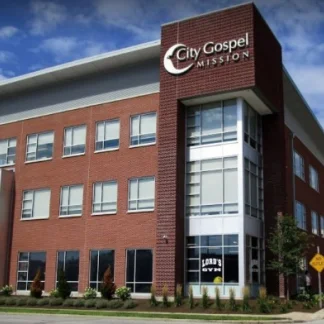Central Clinic Behavioral Health - Young Child Institute
Central Clinic Behavioral Health – Young Child Institute is a drug and alcohol r...
City Gospel Mission is a recovery facility located in Cincinnati, OH. City Gospel Mission offers an array of services to treat mental health and substance abuse issues.
Their recovery program is not a time-oriented process but a goal-oriented process. A typical stay is ten to twelve months, but the participant’s individual goals and treatment plan determine his length of stay. Key components of our recovery program include goal setting, accountability and support, spiritual development, inner healing, health and wellness, job readiness, personalized case management and life skills.
City Gospel Mission helps the homeless and hurting break the cycle of poverty and despair … one life at a time. They engage, equip and empower those in need with the spiritual, emotional, mental and physical skills and resources to achieve long-term life transformation and self-sufficiency. Their proven programs and services are centered on caring, personal relationships focused on four key service areas: food and shelter, recovery, at-risk youth, and job readiness and placement.
They collaborate with more than 350 local churches and 2,500 volunteers to annually serve more than 6,800 adults and 3,500 youth.
Contact us for more information: (513) 241-5525

Connect with City Gospel Mission by calling their admissions team directly.
(513) 241-5525 Website Get DirectionsGroup therapy is any therapeutic work that happens in a group (not one-on-one). There are a number of different group therapy modalities, including support groups, experiential therapy, psycho-education, and more. Group therapy involves treatment as well as processing interaction between group members.
In individual therapy, a patient meets one-on-one with a trained psychologist or counselor. Therapy is a pivotal part of effective substance abuse treatment, as it often covers root causes of addiction, including challenges faced by the patient in their social, family, and work/school life.
Life skills trainings involve all the skills a person must have in order to function successfully in the world. These include time management, career guidance, money management, and effective communication. Truly successful addiction recovery is based on the ability to not only live substance-free, but to thrive. Life skills teaches the practical necessities of functioning in society, which sets clients up for success in life, and therefore sobriety.
In individual therapy, a patient meets one-on-one with a trained psychologist or counselor. Therapy is a pivotal part of effective substance abuse treatment, as it often covers root causes of addiction, including challenges faced by the patient in their social, family, and work/school life.
Life skills trainings involve all the skills a person must have in order to function successfully in the world. These include time management, career guidance, money management, and effective communication. Truly successful addiction recovery is based on the ability to not only live substance-free, but to thrive. Life skills teaches the practical necessities of functioning in society, which sets clients up for success in life, and therefore sobriety.
Life skills trainings involve all the skills a person must have in order to function successfully in the world. These include time management, career guidance, money management, and effective communication. Truly successful addiction recovery is based on the ability to not only live substance-free, but to thrive. Life skills teaches the practical necessities of functioning in society, which sets clients up for success in life, and therefore sobriety.
Central Clinic Behavioral Health – Young Child Institute is a drug and alcohol r...
Talbert House–Pathways, in Cincinnati, Ohio, is a residential drug and alcohol r...
Commonwealth Substance Abuse Specialists is located in Newport, Kentucky. Common...
Sober Living - Camp Washington Men's House offers a clean and affordable house f...